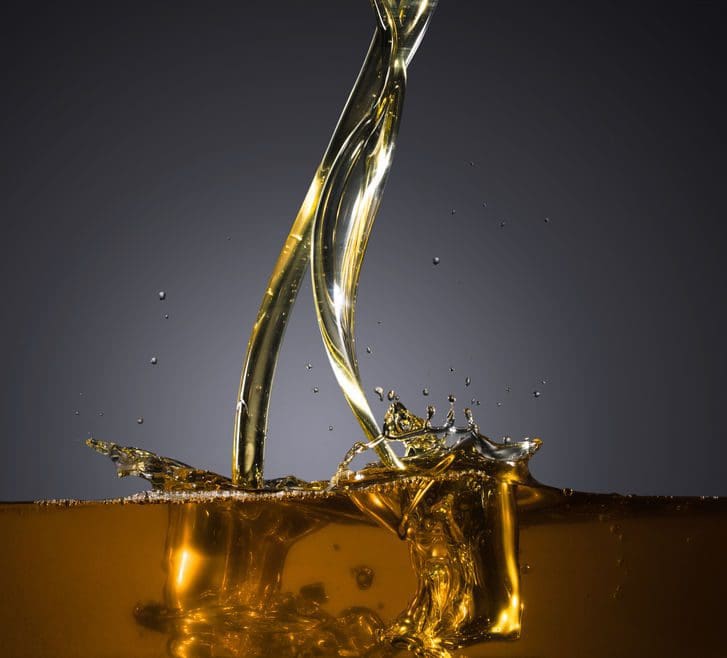Spring is fast approaching, and with it comes the proverbial spring cleaning, so now is a good time to check a few things you might not be considering in your ongoing fluid handling and maintenance programs. Every program is different, but the list below is a good start.
Check the Shelf Life
It may come as a surprise, but lubricating oils and greases have a shelf life. All totes, drums, and pails should have a “filled date” on the label. So, if you don’t know the shelf life, a good way to determine the expiration date is to simply add between 24 and 36 months to the filled date. Unlike common perishables, storing lubricants past their shelf life doesn’t mean that they should be immediately disposed. The stated shelf life gives you a reasonable expectation that the lubricant will perform as intended for a certain amount of time. If you store your lubricants in their original packaging in a clean, cool and dry area, you can use them well beyond their shelf life. But, if your storage conditions are less than ideal, you may want to collect samples and visually inspect them for water and other contaminants.
The printed “filled date” has another use. It allows you to use your lubricants on the “first in, first out” basis. This method requires you to simply organize your stock by filled date, then use the oldest stock first. This simple method will help you avoid using fluids beyond their shelf life.
Prevent Lubricant Contamination
Particle contamination in lubricants is the number one cause of lubricant-related equipment failure. Unplanned outages, lost production, and maintenance over time are all very expensive. It’s a safe estimate that a chemical processing unit makes about $25,000 an hour. At that rate, 48 hours of downtime can cost well over one million dollars in revenue.
What can you do? First, it is important to use certified clean fluid to maintain the system’s cleanliness, maximize the life of the equipment, meet stringent standards, decrease unscheduled downtime, and save money. You can also include laboratory analysis into your fluid maintenance program. Laboratory analysis should also be considered for bulk-stored lubricants as over time storage vessels can become contaminated with particulates and water, especially if you aren’t maintaining the desiccant breathers. It is 90 percent less expensive to remove contaminants before you put them in your equipment so take action before summer hits.
Got Clean Oil? How About Your Tank?
No matter how clean your new oil is, if stored in a dirty tank, you will end up with dirty oil. Tank particulate contamination can typically occur through the vent, through the fill port, or is generated through corrosion wear inside the tank. The latter is usually the result of water ingress through the vent and will likely go away if you take care of the first two issues. Retrofitting your storage tank with a good 3-micron breather filter will, in turn, take care of these two sources of contamination.
Desiccant breathers are probably the most underutilized and neglected tool in contamination prevention. They filter water and particulates from the air that gets drawn into tanks and containers as the fluid level decreases, causing secondary contamination. As the filter absorbs water (in the form of humidity), the desiccant changes color to let you know when it is time to replace it. The color change is different for different brands and is usually noted on the filter itself.
Spring is a good time to make a count of your expired desiccant breathers and plan to replace them as you’ll likely use more in humid summer months. If possible, buy in bulk, as you’ll typically get a better price per unit if ordered by the case. If you aren’t using desiccant breathers, you should consider it. Doing so will not only protect your lubricants and fuels but will also protect the equipment in which they are used.
New oil is not necessarily clean oil either. Over time, particulates settle in the fluids and create a buildup in the bottom of the tank. As you add new fluid, these particulates are redistributed by tank turbulence, creating a cyclical process that contaminates your tank, your fluids and your equipment. To mitigate the issue, you may consider including an in-line filter on your dispensing nozzle, a kidney-loop filtration system on the storage tank, a nitrogen purge or even use of indoor storage areas with filtered air.
What do these prevention methods have in common? They are all time consuming and costly to your business. Instead, consider purchasing certified clean lubricants from a leading provider. They maintain rigorous filtration standards followed by several methods of cleanliness verification, and deliver the oil with a certificate of analysis, and a guaranteed cleanliness level, helping extend the life expectancy of your equipment.
As we move into spring, this is an opportune time to do a little maintenance that will save you major headaches later in the year. So, check your fluids’ expiration dates, replace and stock up on desiccant breather filters, and check your tanks and your fluids for cleanliness. An ounce of prevention is definitely worth a pound of profit.





